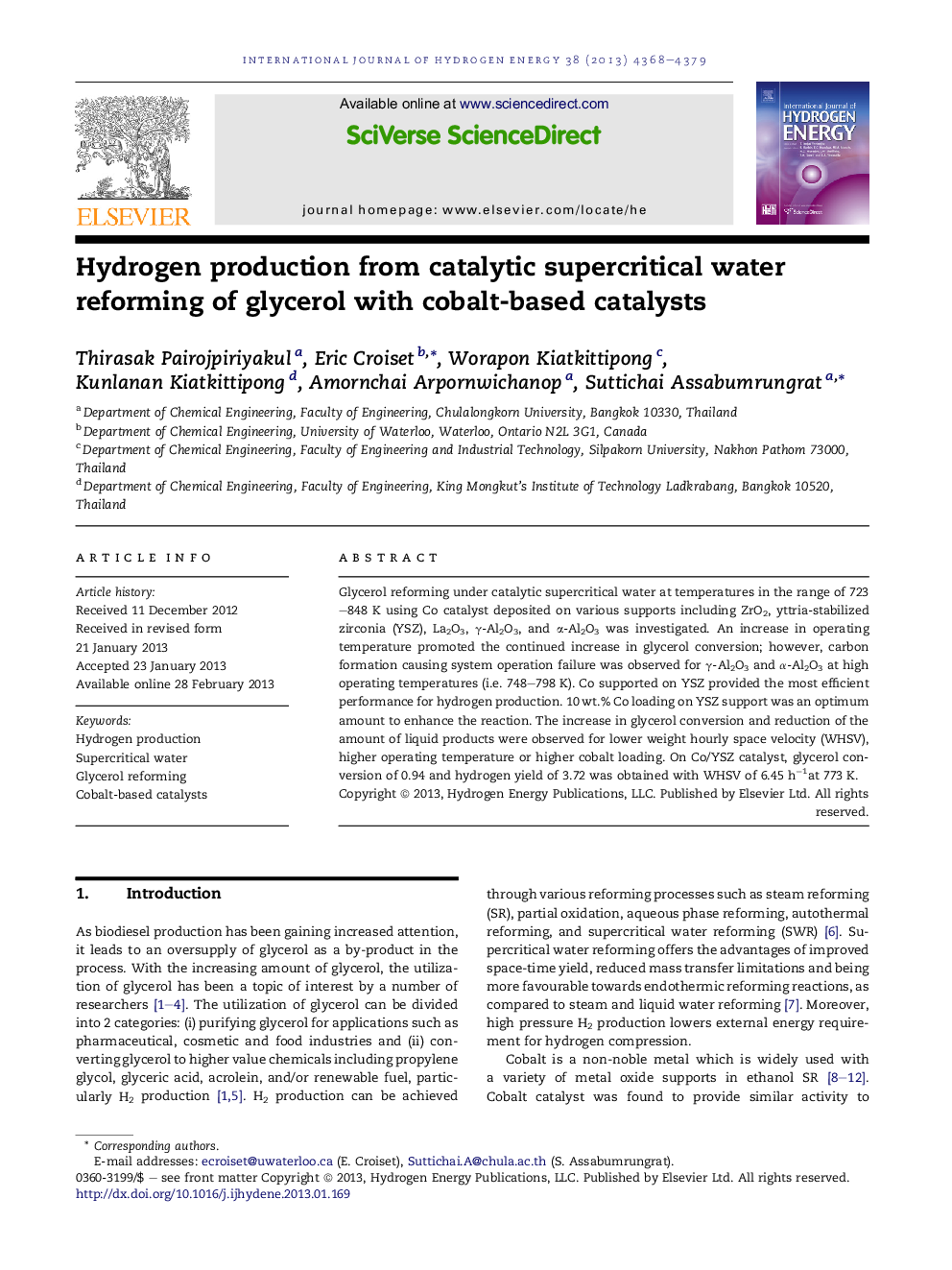| Article ID | Journal | Published Year | Pages | File Type |
|---|---|---|---|---|
| 1278130 | International Journal of Hydrogen Energy | 2013 | 12 Pages |
Glycerol reforming under catalytic supercritical water at temperatures in the range of 723–848 K using Co catalyst deposited on various supports including ZrO2, yttria-stabilized zirconia (YSZ), La2O3, γ-Al2O3, and α-Al2O3 was investigated. An increase in operating temperature promoted the continued increase in glycerol conversion; however, carbon formation causing system operation failure was observed for γ-Al2O3 and α-Al2O3 at high operating temperatures (i.e. 748–798 K). Co supported on YSZ provided the most efficient performance for hydrogen production. 10 wt.% Co loading on YSZ support was an optimum amount to enhance the reaction. The increase in glycerol conversion and reduction of the amount of liquid products were observed for lower weight hourly space velocity (WHSV), higher operating temperature or higher cobalt loading. On Co/YSZ catalyst, glycerol conversion of 0.94 and hydrogen yield of 3.72 was obtained with WHSV of 6.45 h−1at 773 K.
► Hydrogen production from catalytic supercritical water reforming of glycerol. ► Cobalt catalysts on different supports including ZrO2, YSZ, La2O3, γ-Al2O3, and α-Al2O3 were tested. ► 10 wt.% Co/YSZ is the most promising catalyst for hydrogen production. ► Suitable condition of 773 K and WHSV of 6.45 h−1 shows a H2 yield up to 3.72.
